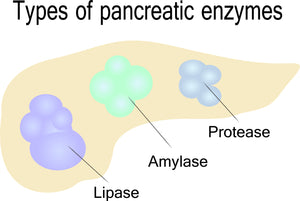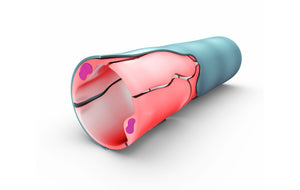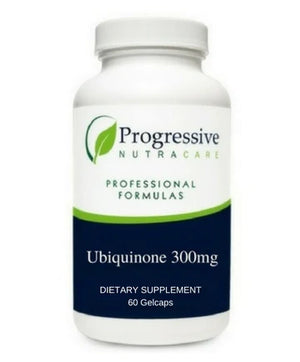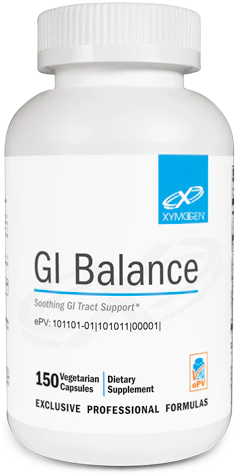How to Avoid the Detox Rebound

As the World gets increasingly crowded, industrialized, and complex, toxins have increased along with progress. Industrial pollutants, additives in food, microplastics, forever chemicals, agricultural fertilizers, pesticides, antibiotics used for livestock, food additives, and other potentially harmful substances are found more and more often in our air and water- and therefore in our bodies. Add to this the stresses of the modern world with its traffic and fast-paced lifestyle, noise, and the general stress of just making it through the week, and many of us might turn to other toxins to lighten the load. A cigarette or vape, a drink, that sugary and fatty doughnut, or just being forced to eat out or eat more processed foods than we’d like because of the time crunch of our modern lives. These toxins can accumulate in our tissues and cause health problems down the road if we don’t address the fact that they are in our bodies.
Toxins in the body can cause a host of problems, especially as they accumulate. They can affect virtually every bodily system. “Chemical compounds ubiquitous in our food, air, and water are now found in every person. The bioaccumulation of these compounds in some individuals can lead to a variety of metabolic and systemic dysfunctions, and in some cases outright disease states. The systems most affected by these xenobiotic compounds include the immune, neurological, and endocrine systems. Toxicity in these systems can lead to immune dysfunction, autoimmunity, asthma, allergies, cancers, cognitive deficit, mood changes, neurological illnesses, changes in libido, reproductive dysfunction, and glucose dysregulation.” (Crinnion WJ. Environmental medicine, part one: the human burden of environmental toxins and their common health effects. Altern Med Rev. 2000 Feb;5(1):52-63. PMID: 10696119.)
Our immune systems are vital for protecting us from disease and infection, and they are increasingly under assault from toxins. Aside from the dangers of not being able to fight off invaders in our body, a weakened immune system is more prone to lengthy responses to outside assaults, including allergens. Susceptibility to allergies, disease, and infection heightens inflammation in the body, which as we’ve often written about, leads to chronic illness and systemic effects, impacting almost every organ- including the brain. Chronic inflammation can shorten our lives, and make us feel like they are less worth living. Once you go down the path of chronic inflammation, it’s hard to come back. It’s even more dangerous if inflammation ends up at the stage of triggering an autoimmune disease- where the body attacks its own cells due to a disorder in immune response. Toxicity in the body resulting from exposure to toxins in the environment is thought to be a major factor in triggering autoimmune diseases “The incidence of autoimmunity is growing rapidly worldwide. Many epidemiological studies have found environmental factors, such as toxic chemicals (persistent organic pollutants, toxic metals, solvents, endocrine disruptors), to be a key factor in this rapid progression.” (Kharrazian D. Exposure to Environmental Toxins and Autoimmune Conditions. Integr Med (Encinitas). 2021 Apr;20(2):20-24. PMID: 34377090; PMCID: PMC8325494.)
The effect of toxins on the neurological system is not a pretty picture either. Many substances can cause varying degrees of neurotoxicity. That neurotoxicity can show immediate symptoms in the brain or the gradual toxic buildup can cause chronic symptoms to eventually emerge. “Neurotoxicity occurs when the exposure to natural or manmade toxic substances (neurotoxicants) alters the normal activity of the nervous system. This can eventually disrupt or even kill neurons (nerve cells) which are important for transmitting and processing signals in the brain and other parts of the nervous system.” (NIH, National Institute of Neurological Disorders and Stroke, Public Information Page). That disruption of the nervous system can express itself in many ways. Stress, mental illness, inability to concentrate, brain fog, memory issues, and interference with muscle control and other bodily functions. In fact, toxic accumulation can even approximate traumatic brain injury: “Chronic, excessive exposure, and accumulation of neurotoxic agents such as heavy metals (lead, mercury, cadmium), mefloquine (Lariam), and food additives such as monosodium glutamate and aspartame cause neurotoxicity and brain damage. This chemical-induced brain damage closely resembles the pathophysiology of classical traumatic brain injury with decreased cognitive function, neurodegeneration, and increased psychiatric manifestations (depression, anxiety, sleep disturbances, and irritability)”. (Marshall TM, Dardia GP, Colvin KL, Nevin R, Macrellis J. Neurotoxicity Associated with Traumatic Brain Injury, Blast, Chemical, Heavy Metal and Quinoline Drug Exposure. Altern Ther Health Med. 2019 Jan;25(1):28-34. PMID: 30982784.)
Endocrine system disruptions are a hallmark of toxic exposure. The endocrine system is a collection of glands, organs, and parts of the brain that control hormones to control and regulate our metabolisms, energy levels, reproduction, development and growth, and contributes to immune response and mood. When your endocrine systems are disrupted by toxins, a whole menu of possibilities could occur. Mood swings, fatigue, weakness, weight gain, blood sugar disruptions, and mental confusion are some of the types of symptoms you could have if your endocrine system is disrupted by toxins. For younger people who are still growing, there can be growth abnormalities, brain dysfunction, and metabolic issues.
With the types of impacts that we’re talking about from constant toxic exposure, it seems obvious that you’d like to avoid them. But how? Avoiding known toxins as much as possible by choosing organic foods, foods without excessive additives and preservatives, living mindfully and as cleanly as possible, and avoiding harsh cleaners and chemicals are all a good start. The problem is that this may not be enough. Despite our best efforts at avoiding toxins, environmental exposure almost guarantees that toxins of some type will accumulate in our bodies. This is where detox comes in. Detoxifying diets, detoxifying with saunas and exercise, and with supplements can all contribute to flushing toxins out of our bodies. Sometimes just with sweat, sometimes by substances in foods and supplements binding to metals and other toxins in the body until they are flushed out. These treatments can be effective, especially when done consistently. Sometimes, though, this can lead to another problem- toxic rebound, when the act of flushing out toxins causes your body to have a rush of symptoms from the sudden release of toxins. Knowing why and how this occurs can help you to avoid it and make your detoxes much less troublesome and more pleasant.
Detoxification happens primarily in the liver, and in two stages, phase 1 and phase 2. Phase 1 detoxification is performed by cytochrome P450 enzymes that neutralize toxins. These are the same enzymes that break down alcohol and caffeine. Other toxins are also first broken down by these mechanisms as you accumulate them. The problem with phase 1 detoxification in the liver is that the byproducts of toxic breakdown can still be hazardous to your health, and lead to symptoms from these byproducts. For instance, although these enzymes break down alcohol, it’s the resulting byproduct, alcohol dehydrogenase that causes the effects of a hangover. Other toxins have similar nasty byproducts, and people who detox just through sweating or taking supplements, or eating foods that have phase 1 binders/detoxification may risk an abrupt buildup of these byproducts. If these byproducts build up and stay in the liver, they can cause further oxidative stress, damaging cells and causing inflammation, and making you feel even worse.
Phase 2 detoxification removes or further breaks down the byproducts of phase 1 detoxification so that they don’t stay in the liver or elsewhere in the body but are flushed out by the liver and kidneys. This is accomplished by making the toxins water-soluble (conjugation) so that they can be flushed out. Glutathione, glycine, and sulfur compounds are the primary components of phase 2 detoxification. Glutathione, in particular, is produced in higher amounts under toxic stress in order to act as an antioxidant to destroy the free radicals and other toxins produced by phase one. Although your body can do all of this naturally, your liver can get overwhelmed. First by not producing enough phase one enzymes to break down all of the toxins in the body, and second by not producing enough antioxidants- particularly glutathione- to make the toxic byproducts from phase 1 detox water-soluble. The reason that people often feel terrible after starting a detoxification protocol is that detoxification is not in balance- you may be breaking down toxic substances in phase one, but not activating phase 2 to the same degree. Some trainers, health coaches, and others may even say it’s a good thing if you feel worse at first because it shows that the toxins are coming out. This isn’t necessarily so. In fact, it’s more likely that you are damaging your body by accumulating toxic byproducts from phase 1 in the liver, increasing free radicals, and therefore increasing inflammation throughout the body.
There’s a better way. Along with a complete detox protocol, or even on its own, it’s important to make sure that you support both phases of detoxification. Dual-phase supplements that help move byproducts of phase 1 quickly to phase 2 water solubility. Dual Phase Balance by Progressive Nutracare offers a balanced approach to detoxification by supporting both phases. This product is formulated to support phase I and phase II detoxification, hence the term “Dual-Phase Optimizers.” Pomegranate extract, catechins, glucosinolates, milk thistle extract, artichoke extract, alpha-lipoic acid, methylsulfonylmethane (MSM), N-acetyl-L-cysteine
(NAC), and calcium D-glucarate tetrahydrate supports critical steps in the complex process of detoxification—a function essential to overall health and vitality. This unique formula provides activated B vitamins for enhanced bioavailability as well. Make your detox safer, more effective, and more comfortable by avoiding detox rebound!
- Tags: Article Immune Inflammation
- Robert Thomas







Comments 0